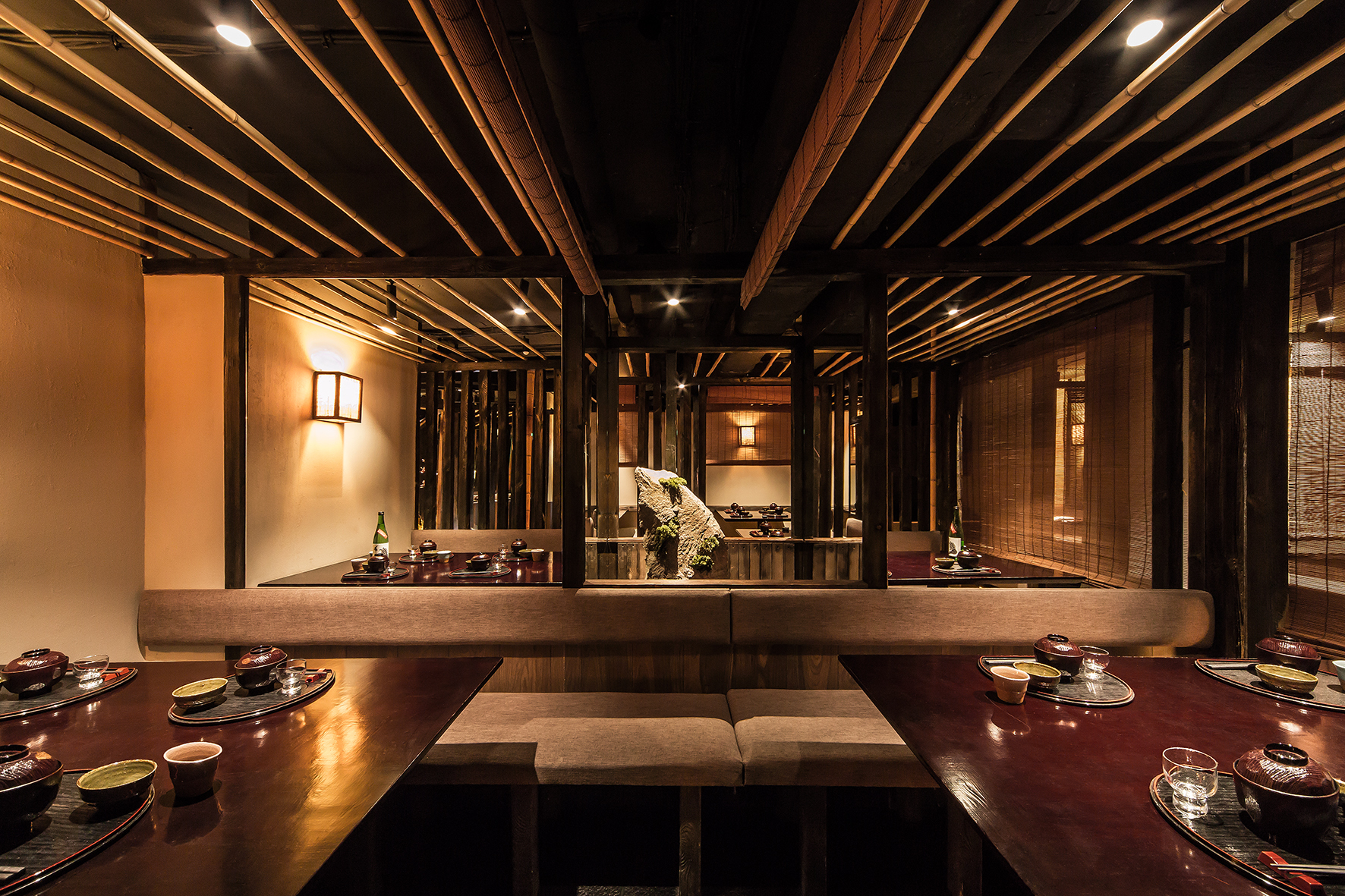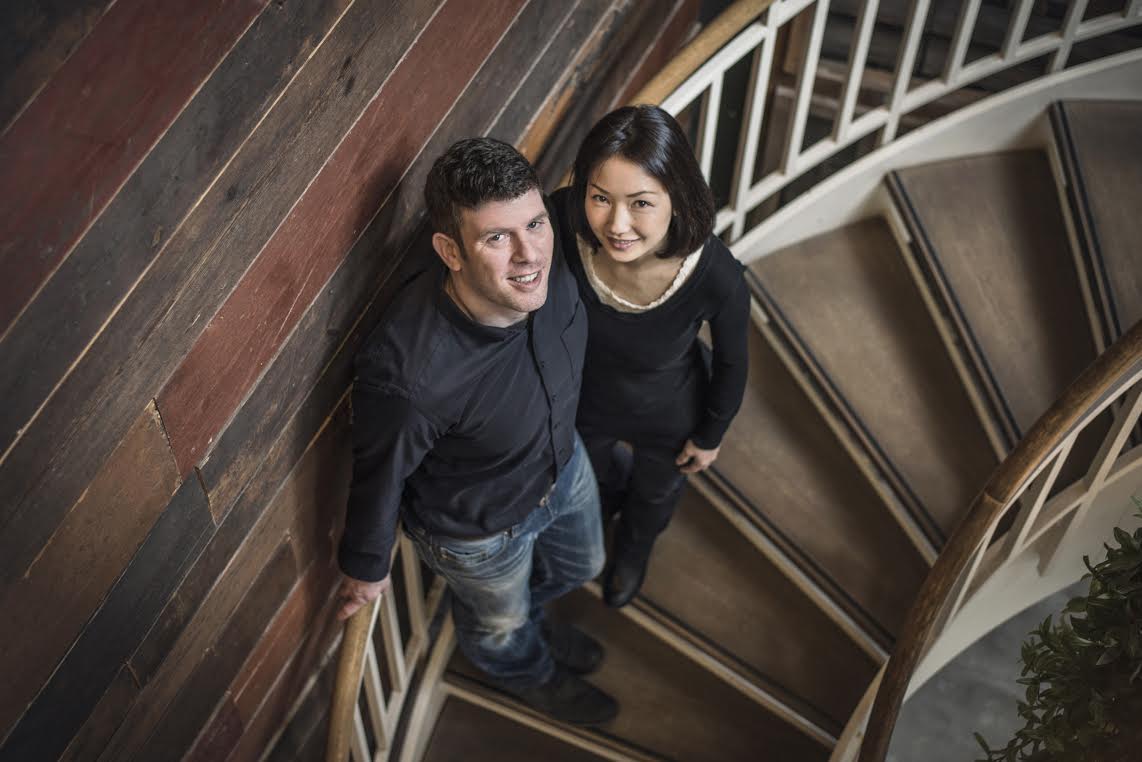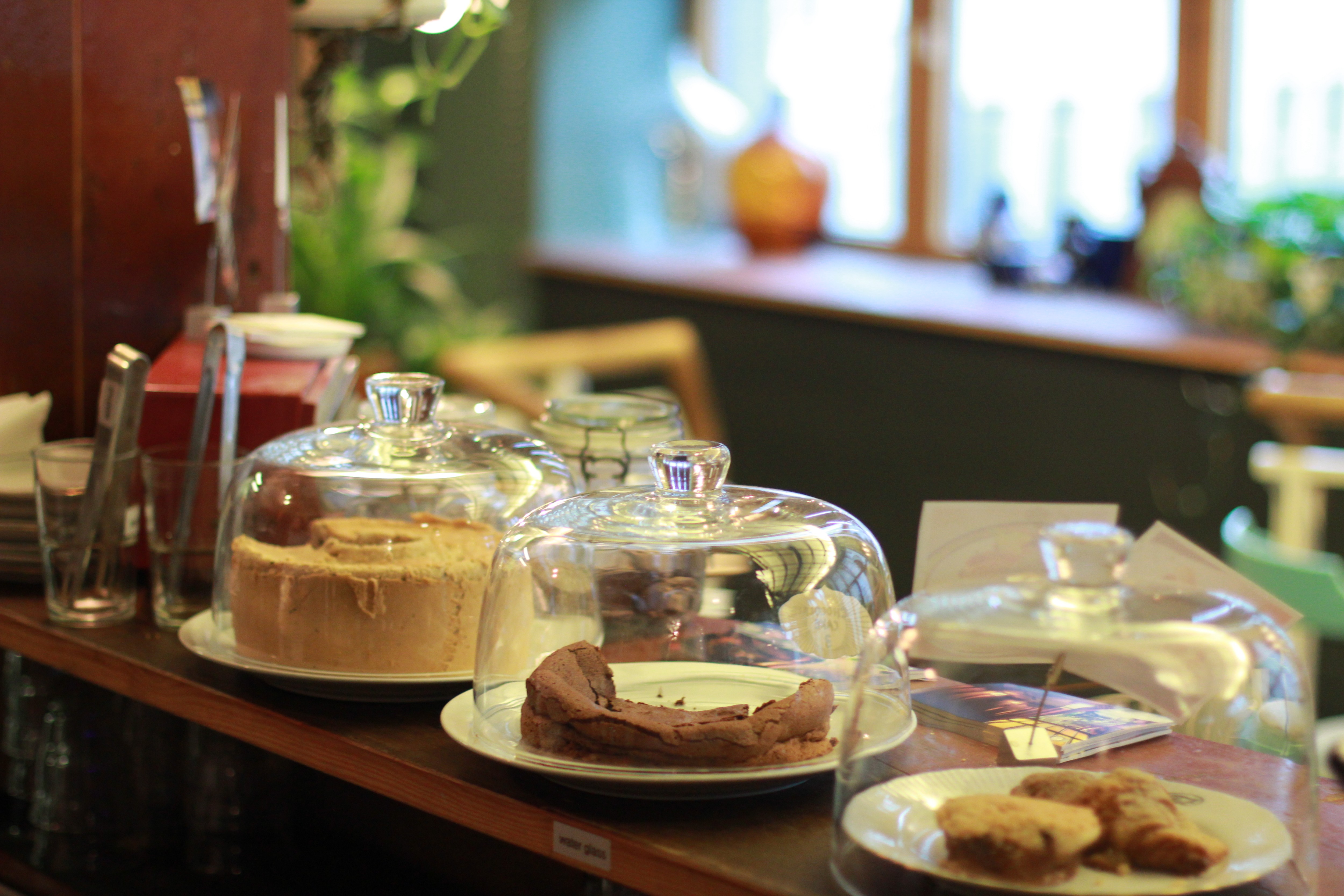Motoko Watanabe and Shaul Margulies are a bit more jetlagged than the average restaurateur.
Their two Brooklyn spots—modern Japanese brasserie Zenkichi and Japan-inflected European café House of Small Wonder—are a literal labor of love: The husband and wife duo spent many dates soaking up the atmosphere of Japanese restaurants in New York, and were inspired by how little changeover there was on the staff at their favorite Japanese restaurants. After visits to Japan (the couple now calls Tokyo home), Margulies suggested opening a Japanese restaurant as a joint venture. Zenkichi was born in 2006 on North 6 th Street in Williamsburg; House of Small Wonder followed in 2010.
 The zen interior of Zenkichi. Photo courtesy of the restaurant
The zen interior of Zenkichi. Photo courtesy of the restaurant
Yet Brooklyn wasn’t the only home the two had in mind. Perhaps the European spirit of their second spot is what pulled them across the pond? Family certainly did; they had been visiting Shaul’s brother in Berlin regularly over the course of ten years, and started to feel that there was room in the German capital to tell a new culinary story. They sensed that Berliners had less choice and versatility in their restaurant offerings than New York, and that they’d be open to a bit of their Williamsburg spirit.
“It feels like the local Berliner point of reference is at times further away than the New Yorker one,” says Margulies. “Berliners are just as much of foodies and just as eager to explore, but sometimes the leap between the familiar and the new is much greater.”
By early 2015, Margulies and Watanabe had opened replicas of House of Small Wonder and Zenkichi in the same building in Berlin’s central, tourist-trafficked neighborhood of Mitte. While the opportunity to bring versatility to the Berlin restaurant scene was irresistible, there were other motivating factors to leave Brooklyn that New Yorkers might understand all too well: cheap rent and less red tape.
“Germans will tell you their bureaucracy is super difficult,” Margulies says. “I will tell you: it’s a walk in the park compared to the States. Take getting a liquor license. We’ve had restaurants in Williamsburg now for 16, 17 years, and Zenkichi in New York still doesn’t have a liquor license—not that we haven’t tried!”
“It’s such a process,” he continues. “Maybe you get it, maybe you don’t, and once you get it, maybe it works, maybe it doesn’t. Here in Berlin, you need a license for operating a business, and if you have that you’re entrusted with the ability to sell alcohol.”
The look and feel of each of the German spaces hews very close to their original counterparts. Giulia Pines, a transplanted New Yorker who was eating at the Berlin House of Small Wonder on a brisk February afternoon, appreciates the feel of the space.
“House of Small wonder does a really good job of transporting you to Brooklyn, especially with the airy, warehouse vibe,” she says.
 Shaul Margulies and Motoko Watanabe, the co-owners of Zenkichi and House of Small Wonder in Brooklyn and Berlin. Photo courtesy of the chefs
Shaul Margulies and Motoko Watanabe, the co-owners of Zenkichi and House of Small Wonder in Brooklyn and Berlin. Photo courtesy of the chefs
Exporting a Brooklyn restaurant concept isn’t like putting some furniture in a shipping container; it’s a bit more ephemeral. Cultural differences in service, a lack of reliable suppliers, and building a base of regulars were all hurdles the pair of restaurateurs had to clear. Margulies points out that New Yorkers dine out more often and are more accustomed to better service and higher quality food—which comes with the price tag to match. In Berlin, diners often seat themselves, grab their own menus, and order at the counter, which makes them much more independent…and less likely to tip.
Additionally, easy access to everyday non-food items like office supplies and cleaning goods is just as important as high-quality ingredients to restaurant owners. Yet there seems to be a missing link in the supply chain in Germany; when you go to a supplier, they’ll ask you to source the product and then they’ll get it to you. The German city also lacks the cutthroat competition that makes restaurateurs the center of attention in New York.
“In Brooklyn, the second I look to change a meat supplier, it’s instant chaos,” Margulies says. “Within a day I’ll have seven meat suppliers trying to tear down my door, besting each other with prices, quality and delivery. There’s a competition to take care of me as a client.” In Berlin, by contrast, “people work to do their job, they don’t work for you. So here, my meat supplier is like, oh sorry, I’m closed T uesda y .”
 Some of the pastries on offer at House of Small Wonder in Berlin. Photo by Elizabeth Rushe
Some of the pastries on offer at House of Small Wonder in Berlin. Photo by Elizabeth Rushe
For all the city’s differences, however, one force has shaped both in equal measure: gentrification. Brooklyn and Berlin are each feeling the brunt of rapid socio-economic shifts that have actually been a part of the success of Margulies and Watanabe’s businesses since the start. Margulies’ first business Anytime, a 24-hour delivery joint on North 6 th , was initially the only thing in the otherwise desolate location.
“The neighborhood bodegas closed at 11 p.m. You couldn’t even buy cigarettes,” he recalls. “There was just one diner nearby, and it made shit food. It’s January in New York—minus thirty degrees at night— and my roommates and I were not leaving our place for a bad hamburger.”
Few restaurants were doing late-night deliveries in Brooklyn back then, so Margulies, his brother and a couple friends decided they would do deliveries around the clock. Anytime had just 12 seats, and no lock on the door. A year after they opened, they were feeding about 1,000 people a day. A decade and change later, North 6th is one of the busiest stretches in Williamsburg. Meanwhile, the expat community of Berlin has been highly influential in creating a boom in the city’s food scene: restaurant openings have exploded; Street Food Thursday, which began in 2013, is now a weekly institution; and street food markets like Bite Club and Street Food Auf Achse are packed.
With plans to extend House of Small Wonder in Berlin into a much larger dining space with a bar for cocktails, and a restaurant with a brand new menu at night, the bi-continental life seems to be working out very well for them.
“We’re so fortunate to have an amazing following of people who believe in our philosophy and support our mission,” says Margulies. “Not only do people come to the restaurant and patronize our business, but they bring their friends and promote what it is we’re trying to do. That’s priceless.”
House of Small Wonder Brooklyn , 77 N 6th St, Brooklyn, 718-388-6160
Zenkichi Brooklyn , 77 N 6th St, Brooklyn, (718) 388-6160
House of Small Wonder Berlin , Johannisstraße 20, Berlin, +49 30 24630810
Zenkichi Berlin, Johannisstraße 20, +49 30 24630810










